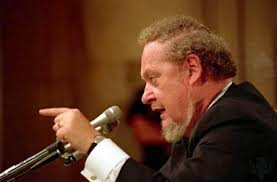Same-Sex Marriage, Federalism, and Judicial Restraint

So I’m teaching constitutional law this semester. The hardest thing to teach students is that bad laws and stupid laws are often perfectly constitutional. It’s a big mistake to confuse constitutional judgments with policy preferences. It’s an equally big mistake to think that social change should ordinarily be led by the Court. I’m follow the spirit of teaching con law here by keeping my eye on the constitutional issues, and saving my personal opinions for later.
Many conservatives are sympathetic to one argument against the Defense of Marriage Act: It’s a violation of the principle of federalism. Each state, under our Constitution, answers the question “what is marriage?” for itself. And what Congress did was to impose a national definition of marriage—between a man and a woman—on the whole country. Now someone could easily respond that the point of the DOMA was to keep the understanding of marriage in one state from being compromised by having to give “full faith and credit” to changes occurring in others. Still, federalism is rarely talked up these days, and we can see why conservatives such as George Will are ready to listen.
With the DOMA, the issue is not judicial activism, but Congressional activism. It was Congress, allegedly, that trampled on the principle of federalism, and so an active Court has to defend what’s reserved to the states from an imperial Congress. Now how often does the Court do that? It has, as the Anti-Federalists predicted, usually acted on behalf of the national government and to undermine the states. The Court was not really set up to be an impartial ref, as the Anti-Federalist Brutus complained. It plays, after all, on the national government’s team.
It seems to me that a defender of the diversity of understandings of marriage in our country made possible by federalism should be equally against the Court imposing a single definition of marriage on the whole country. Let the issue of same-sex marriage be resolved by the states, as the Constitution commands. Public opinion, it seems, is changing. And there’s quite the educational civic dialogue going on concerning “what is marriage?” Let the dialogue continue, and the people decide.
But for most opponents of the DOMA, the use of federalism is clearly tactical. They’re using it to curb Congress, but not the Court. Federalism can be trumped by a “fundamental right” proclaimed by an activist Court.
Federalism turns out to be a weapon to curb Congressional activism, but not judicial activism. It’s a weapon employed to influence which branch of the national government gets to dictate to our states.
It will probably turn out that the most significant Court decisions of 2012-13 will be the one that upheld the constitutionality of ObamaCare and the one soon to come that will or will not declare a constitutional right to same-sex marriage.
The most consistent defender of judicial restraint will be Chief Justice Roberts, who unexpectedly voted to uphold ObamaCare and will vote to uphold the laws on marriage of most of our states. Questions that can be resolved by elections and legislatures should not be determined by a 5-4 vote by our least democratic branch. The Court should give the benefit of the doubt to reasoned decisions of our legislatures state and national.
It might be the case that the most consistent and emphatic defender of judicial activism will be Justice Kennedy. He was all for defending individual rights against the ObamaCare mandate, the one justified by an unconstitutionally permissive interpretation of the power of Congress under the Commerce Clause. And it will be the precedents Kennedy set about constitutional respect for the autonomy of intimate personal decisions and relationships in Planned Parenthood v. Casey and Lawrence v. Texas—not to mention his stirring words about the meaning of constitutional liberty evolving from generation to generation—that will guide the Court if it rules that same-sex marriage is a constitutional right.
Kennedy’s vote is not certain, seeing that he is also on record as wondering whether major social initiatives should come from nine old folks. In Planned Parenthood, he thought of himself as defending the precedent Roe from those who would disrupt our social life through its reversal. Still, if Kennedy doesn’t vote to declare most of the laws on marriage of our states unconstitutional, he will be criticized with some justice for not following the logic of his previous opinions.
On the judicial restraint front, the other justices are clearly less consistent. I haven’t shown, of course, that being inconsistent in this way is wrong.
I also haven’t shown that Congress is all that against judicial activism. Back when ObamaCare was unpopular, many Democratic members of Congress would have been relieved to have been freed from the burden of defending it. And many Republican members would feel more secure if they could be freed from the burden of participating in the national dialogue mentioned above, especially because things don’t seem to be going the Republican way right now. Something similar could be said, of course, about Democrats representing “red states.”
I do think Congress should be more against judicial activism than it is. The theory of our Constitution is that each of our three branches will, in the service of its own ambition, work to check the power of the other two.





